The evolution of shopping spaces
Fashion stores today do more than just sell clothing -- they represent lifestyles
By Korea HeraldPublished : April 22, 2015 - 18:41
Park Jae-hun, 25, heads over to a casual menswear shop in Itaewon to buy some short-sleeve shirts for the upcoming summer season.
While browsing, he notices a shelf full of bath soaps by the wall and a display of sunglasses and backpacks nearby. Even though they are not what he originally intended to buy, Park is intrigued and looks through the items anyway. After shopping, he orders a drink and relaxes at the cafe inside the shop.
While browsing, he notices a shelf full of bath soaps by the wall and a display of sunglasses and backpacks nearby. Even though they are not what he originally intended to buy, Park is intrigued and looks through the items anyway. After shopping, he orders a drink and relaxes at the cafe inside the shop.
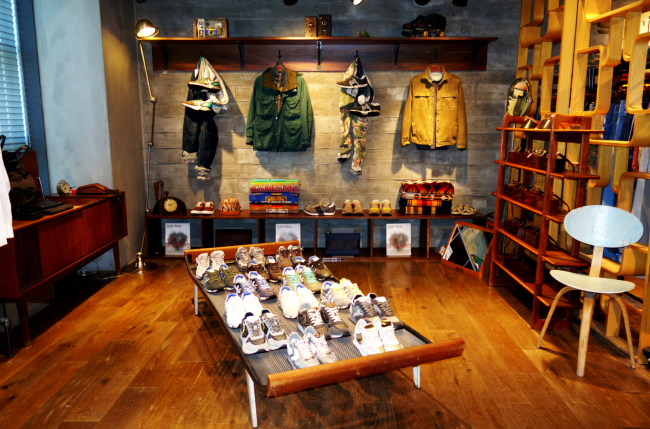
His three basic necessities of food, clothing and shelter have all come together in the one place.
For Park, shopping is more than an economic activity ― it is a leisurely experience.
“My girlfriend and I sometimes shop even when we have nothing to buy,” he said. “It’s a way of spending time together.”
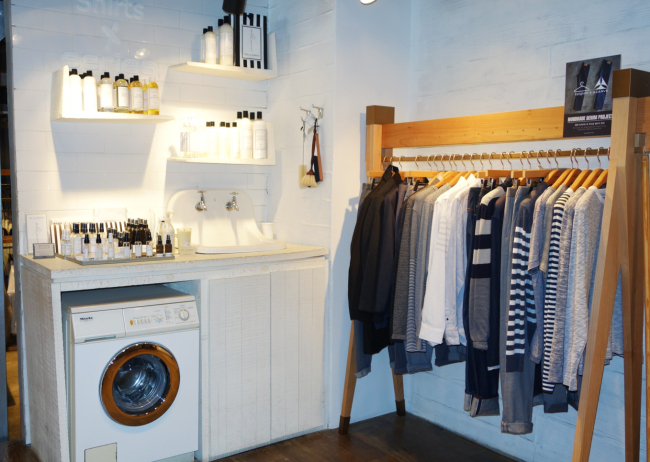
Catching onto this type of consumer behavioral pattern, fashion retail stores today are doing more than just selling clothing ― they are selling a way of life. Inside stores, spaces are being artfully designed to tell a story and reflect consumers’ lifestyles.
The concept behind the Series Corner store, for example, is “a man’s room.” Complete with a bedframe, record player and even a display case that resembles a bathroom sink, the space is designed to evoke “the intimacy and comfort of home” ― making shopping feel more personal, like rummaging through a friend’s closet. A cafe also greets both shoppers and passersby at the front of the store.
“Series Corner aims to be more than just a fashion brand,” said Kim Hee-jin, assistant manager at Kolon, the mother company of the casual menswear brand. “We want to provide a cultural multiplex that incorporates the hobbies of our shoppers.”
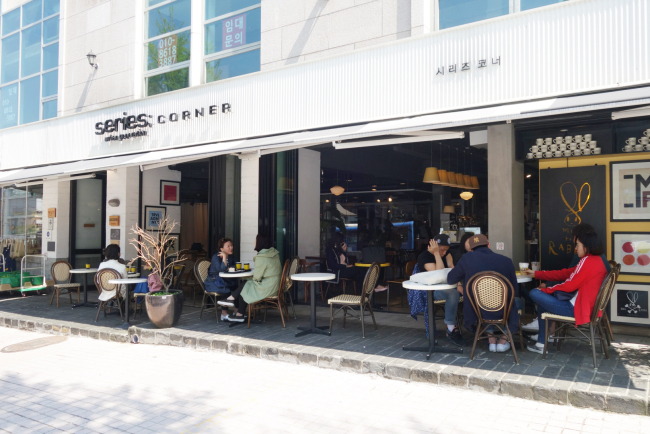
The decision is not only a creative one, but also a product of necessity in terms of sales and the industry environment.
“There are so many distribution channels today, from department stores, compilation shops and road shops to online markets,” Kim said. “Amid the intensifying competition, having a unique theme has become an attraction point for consumers. It leads to better sales. Series Corner’s sales increased by 120 percent in 2014, compared to 2013.”
Stores are also being differentiated according to their location. The theme for the Series store at the Hyundai Department Store COEX branch is “a man’s table,” while the Lotte Avenuel World Tower store has been decorated like “a man’s house.”
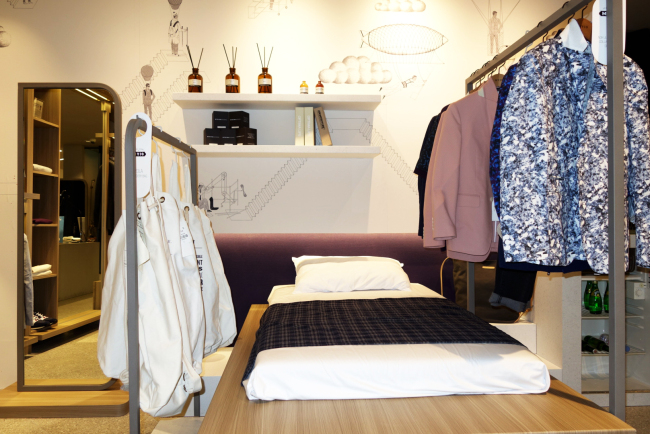
Themes also vary according to the style of clothing. MVIO, a retailer of formal contemporary menswear, has turned its COEX Center store into a hotel-themed lounge. A bed is situated at the back, with racks of jackets and linen bags on either side, while a concierge’s desk has replaced the cash register. The fitting room resembles a shower booth.
To create this space, the brand examined the interests of its main target consumer base ― 20-something male office workers who seek fashionable yet affordable suits.
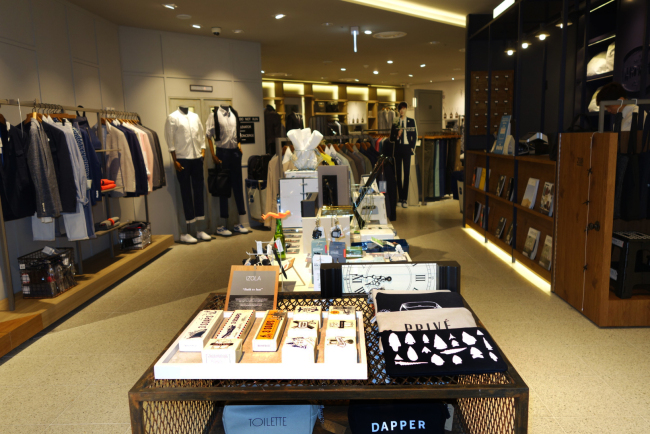
“We noticed that boutique hotels are becoming trendy meet-up places for the younger working generation,” said brand manager Lee Seung-je. “We plan to develop this theme further in the future. We’re thinking of hanging up artwork that matches the color scheme and fabric of that season’s collection to make the shop more like a hotel lobby.”
In addition to its selection of suits, the store boasts a display of home accessories like bookends, bottle openers, clocks and candles. Electronic gadgets like solar-powered radios and portable cell phone chargers line the shelves.
“Many shoppers show an interest in our accessories, in addition to our clothes,” said Lee, as the boundaries between fashion and lifestyle become increasingly blurred.
“Clothing stores today are turning into interactive cultural hubs. We hope to lead that trend here at MVIO.”
By Rumy Doo (bigbird@heraldcorp.com)
-
Articles by Korea Herald







![[KH Explains] How should Korea adjust its trade defenses against Chinese EVs?](http://res.heraldm.com/phpwas/restmb_idxmake.php?idx=644&simg=/content/image/2024/04/15/20240415050562_0.jpg&u=20240415144419)











![[Today’s K-pop] Stray Kids to return soon: report](http://res.heraldm.com/phpwas/restmb_idxmake.php?idx=642&simg=/content/image/2024/04/16/20240416050713_0.jpg&u=)